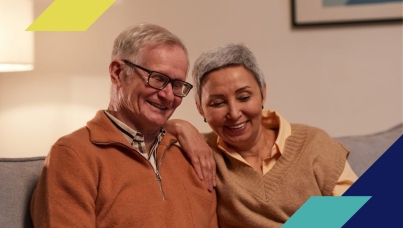Election Debate Viewers Say Hudak Wins, Gets Knock Out Punch While Horwath Impresses, Wynne Falters
A pre-debate survey was conducted on Debate Day among 2,068 Ontarians who intended to watch the debate and vote on Election Day; the post-debate survey was conducted among a group of 1,765 Ontario adults who actually viewed the televised debate and intend to vote on Election Day.
The results show that nearly four in ten (36%) viewers think that PC Leader Tim Hudak won the debate, up from the 24% of viewers who thought he would win the debate, showing that he performed well above expectations. In contrast, just 27% believe Liberal Party Leader and Premier Kathleen Wynne won the debate, down from the 32% who thought she would win the debate and falling short of expectations. NDP Leader Andrea Horwath also exceeded expectations, with 26% believing she won the debate, up from the 17% who thought she would win. One in ten (10%) viewers isn't sure who won the debate (27% were unsure of who would win out the outset).
Nearly three in ten (26%) viewers say that Tim Hudak had a knock-out punch - an argument or moment that was the defining moment of the debate - compared with significantly fewer who believe the knock-out punch belonged to Horwath (15%) or Wynne (12%). Nearly half (47%) of viewers, though, believe that no knock-out punch was delivered by any of the party leaders.
While Hudak may have won the debate, it was Andrea Horwath who made the biggest impression on viewers as 54% say they have an improved impression of her as a result of the debate, while just 15% say their impressions worsened, representing a net score of +39. By comparison, in 2011, Horwath's net impact was +57, but it only provided a slight bounce to the NDP's popular support following the debate.
Four in ten (40%) have an improved impression of Tim Hudak, compared to one in three (34%) who have a worsened impression, representing a net score of +6. But the loser is Premier Kathleen Wynne: only 24% say their impression of her improved as a result of the debate, while 43% had a worsening opinion of her, representing a net score of -19.
Viewers were asked to rate the leaders on various leadership attributes. The data are compared to the pre-poll expectations to gauge the impact that the debate had on viewers' opinions of the leaders:
- Four in ten (36%, +6) believe that Tim Hudak offered the best ideas and policies in the debate, while Horwath (31%, +7) is in second position and Wynne trails (28%, -3) in third. Four percent (4%, -11) don't know.
- Four in ten (37%, + 9) believe that Tim Hudak sounded and acted the most like a Premier, tied with Kathleen Wynne (37%, -5) but well ahead of Andrea Horwath (22%, +4). Four percent (5%, -6) don't know.
- Andrea Horwath (43%, +4) came across as most likeable, while Wynne (26%, -2) and Hudak (25%, +5) were far behind. One in twenty (5%, -7) don't know who they liked most.
- Andrea Horwath wins (57%, +6) as the leader who is most visually attractive, with Tim Hudak (17%, +2) and Kathleen Wynne (12%, unchanged) trailing in that department. One in ten (14%, -8) don't know.
Last week an Ipsos poll revealed that roughly one in ten (13%) Ontarians were likely to make their ballot box decision based on the outcome of Tuesday's debate. The post-debate data show that one in ten (13%) viewers say they changed their mind about who they were going to vote for as a result of what they saw tonight, suggesting that there could be some shifting momentum in the days ahead.
In the post-debate poll of viewers, the economy solidified its position as the primary issue in the campaign (32%, +2) while other issues are of less importance to Ontarians, including: debt/deficit reduction (10%, +2), government accountability (9%, down 1 point), healthcare (8%, -2), taxes (8%, +1), social services (8%, no change), energy/electricity (8%, +1), education (5%, up 1), public transit (4%, -1), poverty (3%, -1), environment (2%, no change), public services (1%, -1), crime/justice (1%, unchanged), and some other issue (0%, -1).
Focusing on specific issues, and who is best to lead on each, reveals that on many topics Tim Hudak and Andrea Horwath made gains while Kathleen Wynne lost ground:
- Economy - Tim Hudak (38%, +5), Kathleen Wynne (31%, +3), Andrea Horwath (21%, +3), don't know (10%, -10).
- Healthcare - Andrea Horwath (34%, +8), Kathleen Wynne (27%, -3), Tim Hudak (19%, -1), don't know (21%, -4).
- Government Accountability - Tim Hudak (37%, +6), Andrea Horwath (29%, +6), Kathleen Wynne (19%, unchanged) and two in ten don't know (15%, -13).
- Debt/Deficit reduction - Tim Hudak (44%, +8), Andrea Horwath (21%, +5), Kathleen Wynne (20%, -3), don't know (15%, -10).
- Taxes - Tim Hudak (38%, +4), Andrea Horwath (24%, +3), Kathleen Wynne (24%, unchanged), don't know (14%, -8).
- Social Services - Andrea Horwath (39%, +7), Kathleen Wynne (27%, -1), Tim Hudak (19%, +1), don't know (15%, -8).
- Education - Andrea Horwath (30%, +8), Kathleen Wynne (29%, -5), Tim Hudak (28%, +8), don't know (12%, -12).
- Environment - Andrea Horwath (33%, +9), Kathleen Wynne (21%, -3), Tim Hudak (15%, unchanged), don't know (31%, -6).
On the issue that matters most to them, personally, one in three (34%) say that Tim Hudak did the best job of addressing that issue in tonight's debate. This compares with one quarter (26%) who say that Kathleen Wynne did the best job addressing their top concern, and slightly fewer viewers (23%) who say that Andrea Horwath did so. Two in ten (18%), though, say that no leader did a good job addressing the issue that matters to them the most.
Prior to the start of the debate, 36% of viewers believed that the Wynne government has done a good job and deserves re-election, while most (64%) thought it was time for another provincial party to take over at Queen's Park. At the conclusion of the debate, there was a slight change: just one in three (34%) believe Wynne's government deserves re-election (down 2 points), while 66% desire change (up 2 points).
These are some of the findings of an Ipsos Reid poll conducted for CTV News and CP24 on June 3rd, 2014 from immediately before and after the Televised Leaders debate. The pre-debate survey was conducted among 2,068 Ontarian adults; the post-debate survey was conducted among 1,765 Ontarian adults. Respondents were selected via the Ipsos I-Say Online Panel, Ipsos Reid's national online panel. The sample was drawn from a pre-recruited panel of 4,152 voters said they would vote on Election Day and watch the debate. Weighting was then employed to balance demographics to ensure that the sample's composition reflects that of the adult population according to Census data and to provide results intended to approximate the sample universe. The precision of Ipsos online surveys are measured using a Bayesian Credibility Interval. For the pre-debate poll, the results are accurate to within +/- 2.5 percentage points, 19 times out of 20. For the post-debate poll, the results are accurate to within +/- 2.7 percentage points, 19 times out of 20, of what the results would have been had the entire population of adults in Ontario who watched the debate an intend to vote on election day been polled. All sample surveys and polls may be subject to other sources of error, including, but not limited to coverage error, and measurement error.
For more information on this news release, please contact:
John Wright
Senior Vice President
Ipsos Reid
Public Affairs
416.324.2002
[email protected]
About Ipsos Reid
Ipsos Reid is Canada's market intelligence leader, the country's leading provider of public opinion research, and research partner for loyalty and forecasting and modelling insights. With operations in eight cities, Ipsos Reid employs more than 600 research professionals and support staff in Canada. The company has the biggest network of telephone call centres in the country, as well as the largest pre-recruited household and online panels. Ipsos Reid's marketing research and public affairs practices offer the premier suite of research vehicles in Canada, all of which provide clients with actionable and relevant information. Staffed with seasoned research consultants with extensive industry-specific backgrounds, Ipsos Reid offers syndicated information or custom solutions across key sectors of the Canadian economy, including consumer packaged goods, financial services, automotive, retail, and technology & telecommunications. Ipsos Reid is an Ipsos company, a leading global survey-based market research group.
To learn more, please visit www.ipsos.ca.
About Ipsos
Ipsos is an independent market research company controlled and managed by research professionals. Founded in France in 1975, Ipsos has grown into a worldwide research group with a strong presence in all key markets. Ipsos ranks third in the global research industry.
With offices in 86 countries, Ipsos delivers insightful expertise across six research specializations: advertising, customer loyalty, marketing, media, public affairs research, and survey management.
Ipsos researchers assess market potential and interpret market trends. They develop and build brands. They help clients build long-term relationships with their customers. They test advertising and study audience responses to various media and they measure public opinion around the globe.
Ipsos has been listed on the Paris Stock Exchange since 1999 and generated global revenues of e1,712,4 million (2 274 M$) in 2013.
Visit www.ipsos.com to learn more about Ipsos' offerings and capabilities.



